Welcome to another insightful blog post, dear readers! Today, we’ll be delving into the fascinating world of mental health assessments by introducing you to the Mental Status Exam (MSE) Template. The MSE is a crucial tool in the arsenal of mental health professionals, allowing them to systematically evaluate a patient’s cognitive, emotional, and behavioral functioning.
This comprehensive assessment provides invaluable information, which can assist clinicians in making accurate diagnoses and tailoring effective treatment plans. So, buckle up and join me as we explore the essential components of this indispensable resource, and learn how it can make a world of difference in understanding and managing mental health conditions.
Table of Contents
Mental Status Exam Templates
Conducting a comprehensive mental health assessment requires a systematic evaluation of an individual’s mental state. Our Mental Status Exam Templates provide a structured framework to document observations and findings during the assessment process. These templates cover various components of mental status evaluation, including appearance, behavior, speech, mood, cognition, and more.
With our printable and customizable templates, mental health professionals can efficiently gather and organize essential information for diagnosis and treatment planning. Whether you work in psychology, psychiatry, counseling, or related fields, our templates will streamline your assessment process and ensure thorough documentation. Download our free Mental Status Exam Templates today and enhance your clinical practice.
The key elements of a mental status exam

As a healthcare provider, you may come across patients who present with possible mental health concerns during your routine practice. While it may seem daunting to conduct a formal mental status examination, it’s important to note that a lot of the information you need can be gathered through a normal conversation with the patient. By keeping certain components of a mental status exam in mind during the interview, you can consciously evaluate their mental status and identify any red flags that may require further evaluation.
So, let’s dive into each of these areas and explore their significance in the world of mental health assessment:
Appearance and Behavior
First impressions matter, even in mental health assessments. This component focuses on the patient’s overall presentation, including their grooming, clothing, posture, and any unusual behaviors. Observing these aspects can provide essential clues about a patient’s mental and emotional state.
Speech and Language
Communication is key in the MSE. The clinician will take note of the patient’s speech rate, volume, fluency, and articulation. Additionally, the language used and the coherence of the patient’s thoughts can offer insights into their thought processes and potential cognitive impairments.
Mood and Affect
It’s time to get in touch with our emotions! In this section, the clinician will assess the patient’s self-reported mood and their emotional expression (affect). By understanding the range, intensity, and appropriateness of emotions, mental health professionals can identify mood disorders and emotional disturbances.
Thought Content and Process
This component delves into the patient’s thought patterns, including the presence of delusions, hallucinations, obsessions, and suicidal or homicidal ideation. The thought process refers to the organization, logic, and coherence of a patient’s thoughts, which can reveal disorders like schizophrenia or mania.
Cognitive Functioning
Time to put on our thinking caps! This part of the MSE assesses various cognitive abilities, such as attention, concentration, memory, orientation, and intelligence. This information can help clinicians identify cognitive deficits or decline, often associated with conditions like dementia or traumatic brain injury.
Insight and Judgment
Last but not least, this component evaluates the patient’s understanding of their mental health condition and the appropriateness of their decision-making. Insight and judgment are crucial factors in determining a patient’s ability to engage in effective treatment and make well-informed choices.
Mental Status Exam Examples
Understanding how these components come together in practice is essential for both mental health professionals and anyone interested in gaining a deeper understanding of mental health assessments. So, without further ado, let’s dive into a few illustrative MSE examples that will help you grasp each component more effectively!
Example 1:
Appearance and Behavior: Sarah, a 24-year-old woman, presents as neatly dressed and well-groomed, with no noticeable stains or odors. She maintains eye contact and sits with an upright posture. She fidgets with her hair occasionally.
Speech and Language: Sarah’s speech is clear and coherent, with a normal rate and volume. Her language is rich and expressive, and she articulates her thoughts well.
Mood and Affect: She reports feeling “down” and “hopeless” for the past few weeks. Her affect is congruent with her mood, appearing sad and tearful at times.
Thought Content and Process: Sarah denies experiencing hallucinations or delusions. She admits to having recurrent thoughts of self-doubt and low self-worth. Her thought process is logical and goal-directed.
Cognitive Functioning: She is fully oriented to person, place, and time. Sarah’s attention and concentration are intact, and her memory is within normal limits.
Insight and Judgment: Sarah demonstrates good insight into her depressive symptoms and recognizes that she needs help. Her judgment appears to be intact, as evidenced by her decision to seek therapy.
Example 2:
Appearance and Behavior: John, a 45-year-old man, appears disheveled and unkempt. His clothes are dirty, and he has a strong odor. He avoids eye contact and paces around the room.
Speech and Language: John’s speech is pressured and loud, with rapid-fire sentences and frequent topic changes. His language is difficult to follow due to tangential thoughts and disorganization.
Mood and Affect: He reports feeling “on top of the world” and “invincible.” His affect is labile, shifting from euphoria to irritability within minutes.
Thought Content and Process: John believes he has special powers and can control the weather. He reports hearing voices telling him that he is destined for greatness. His thought process is disorganized and chaotic.
Cognitive Functioning: John is oriented to person but is disoriented to time and place. His attention and concentration are poor, and his memory is impaired.
Insight and Judgment: He lacks insight into his condition, believing that his experiences are supernatural rather than symptoms of mental illness. His judgment is poor, as evidenced by his recent impulsive decisions, such as quitting his job and spending all his savings on lottery tickets.
These two examples illustrate how the components of a Mental Status Exam come together to provide a comprehensive picture of a patient’s mental state. By carefully assessing each aspect of the MSE, mental health professionals can better understand their patients and create tailored treatment plans to address their unique needs. So, next time you encounter a mental health assessment, remember the power of the MSE in revealing the complexities of the human mind!
Applying a mental status exam
A Mental Status Exam (MSE) is a crucial component of a psychological assessment used by mental health professionals to evaluate a person’s cognitive, emotional, and behavioral functioning. The following is a comprehensive guide on how to apply for an MSE:
Identify the need for an MSE
The first step is to recognize the need for an MSE. You might want to consider an MSE if you or someone you know is experiencing symptoms of a mental health disorder, such as depression, anxiety, or other emotional or behavioral issues.
Find a qualified mental health professional
To get an MSE, you’ll need to consult with a qualified mental health professional, such as a psychiatrist, psychologist, or licensed clinical social worker (LCSW). These professionals are trained to perform MSEs and can provide you with the appropriate support and guidance.
Research your options
Start by researching mental health professionals in your area. You can do this by:
Asking for recommendations from friends, family, or healthcare providers
Searching online directories, such as Psychology Today or your insurance provider’s directory
Contacting local mental health clinics or hospitals for recommendations
Verify credentials and expertise
Before scheduling an appointment, ensure that the mental health professional is licensed and has the appropriate credentials. You can usually find this information on their website or by contacting their office. Additionally, confirm that they have experience in conducting MSEs.
Schedule an appointment
Once you have found a suitable mental health professional, schedule an appointment for an initial consultation. During this session, you can discuss your concerns and the professional will determine if an MSE is appropriate.
Prepare for the MSE: Before your appointment, it may be helpful to:
- Make a list of your symptoms, concerns, and any questions you may have
- Gather any relevant medical records or documentation
- Inform a family member or friend about your appointment, as they may be able to provide additional insight or support
- Attend the MSE appointment: During the MSE, the mental health professional will assess various aspects of your mental functioning, including:
- Appearance, behavior, and mood
- Speech and thought patterns
- Memory and cognitive abilities
- Insight and judgment
- Perception and thought content
The assessment will involve a combination of observation, conversation, and possibly some psychological tests.
Review the results and discuss treatment options
After completing the MSE, the mental health professional will discuss the results with you and provide a diagnosis if applicable. They will also recommend appropriate treatment options, which may include therapy, medication, or a combination of both.
Follow up and maintain communication
It’s essential to maintain open communication with your mental health professional throughout your treatment. Attend follow-up appointments as needed and discuss any changes in your symptoms or concerns.
Remember that seeking help for mental health concerns is a sign of strength, not weakness. By applying for a mental status exam, you are taking the first step towards understanding your mental health and finding the right support and treatment.
How to examine mental status?
A Mental Status Exam (MSE) is a systematic assessment of a person’s cognitive, emotional, and behavioral functioning. Mental health professionals use the MSE to help diagnose and treat mental health conditions. Here is a comprehensive guide on how to perform an MSE:
Establish rapport and ensure a comfortable environment:
Begin by introducing yourself and explaining the purpose of the MSE. Make sure the individual feels comfortable and safe, as this will encourage honest and open communication during the assessment.
Observe general appearance and behavior:
Evaluate the individual’s physical appearance, grooming, posture, and motor behavior. Look for any signs of distress or agitation, and take note of any unusual or inappropriate behaviors.
Assess speech and language:
Pay attention to the individual’s speech and language, including the rate, volume, tone, and fluency. Listen for any abnormalities or peculiarities in their speech that could indicate an underlying issue.
Evaluate mood and affect:
Ask the individual to describe their current emotional state (mood) and observe their outward emotional expression (affect). Determine if the individual’s affect is congruent with their reported mood or if there are any discrepancies.
Assess thought processes and content:
Evaluate the individual’s thought processes, including the rate, coherence, and organization of their thoughts. Also, explore the content of their thoughts by asking about any unusual beliefs, delusions, or preoccupations. Inquire about any suicidal or homicidal ideations.
Evaluate perception:
Ask about any hallucinations or unusual sensory experiences, such as hearing voices or seeing things that others cannot. Determine if these experiences are related to a mental health condition or an external factor, such as medication or substance use.
Assess cognition and intellectual functioning:
Evaluate the individual’s cognitive abilities, including their orientation to time, place, and person. Test their memory by asking them to recall recent and remote events. Assess their attention and concentration by asking them to perform simple tasks, such as counting backward from 100 or spelling a word backward. Evaluate their general knowledge and intellectual functioning by asking about current events, common facts, or problem-solving abilities.
Assess insight and judgment:
Determine the individual’s level of insight into their mental health condition by asking about their understanding of their symptoms and the impact on their life. Evaluate their judgment by presenting hypothetical situations and asking how they would respond.
Document your findings:
Record your observations and findings in a clear and organized manner, following a standardized format. This documentation will serve as a valuable reference for diagnosis, treatment planning, and monitoring progress.
Interpret the results and develop a treatment plan:
Review the information gathered during the MSE to identify any patterns or themes that may indicate a mental health condition. Collaborate with other mental health professionals, if needed, to reach a diagnosis and develop an appropriate treatment plan.
Questions to ask clients during Mental Status Exam
During a Mental Status Exam (MSE), mental health professionals ask a variety of questions to gather information about a client’s cognitive, emotional, and behavioral functioning. Here is a list of questions that can be asked during an MSE:
General appearance and behavior:
1. How are you feeling today?
Speech and language:
2. Can you describe your day in detail?
3. Can you tell me about a recent event that made you happy or sad?
Mood and affect:
4. How would you describe your mood lately?
5. Can you rate your mood on a scale of 1 to 10, with 1 being very sad and 10 being very happy?
6. Have you experienced any sudden mood swings or changes in your emotions?
Thought processes and content:
7. Have you had any thoughts that seem to race or go too fast?
8. Have you had any difficulty organizing your thoughts or staying on track during a conversation?
9. Are there any beliefs or ideas that you hold that others might find unusual or difficult to understand?
10. Have you had any thoughts about harming yourself or others?
Perception:
11. Have you experienced any unusual sensations, such as hearing voices or seeing things that others cannot?
12. Do you ever feel like others can read your mind or control your thoughts?
Cognition and intellectual functioning:
13. What is today’s date, and where are we right now?
14. Can you recall the names of the current president and vice president?
15. Can you count backward from 100 by 7s?
16. Can you spell the word “world” backward?
Memory:
17. Can you remember three unrelated words I will give you, and then recall them after a few minutes?
18. Can you describe a recent event in detail, such as a recent meal or conversation?
Insight and judgment:
19. What do you think is causing your current difficulties or symptoms?
20. Can you think of any situations where your symptoms might have a negative impact on your life?
21. If you found a stamped envelope on the ground, what would you do with it?
FAQs
Here are some frequently asked questions (FAQs) and their answers about the Mental Status Exam (MSE):
Who performs a Mental Status Exam?
Qualified mental health professionals, such as psychiatrists, psychologists, licensed clinical social workers (LCSWs), and psychiatric nurse practitioners, perform MSEs.
What is the purpose of an MSE?
The MSE is used to evaluate a person’s mental state, identify any potential mental health conditions, and inform treatment planning.
How long does an MSE take?
The duration of an MSE varies depending on the individual and the assessor. However, it typically takes between 20 minutes to an hour.
Is the MSE a standardized test?
The MSE is not a standardized test like many psychological assessments. Instead, it is a structured clinical interview that relies on the mental health professional’s observations and clinical judgment.
What areas are assessed during an MSE?
The MSE evaluates several aspects of a person’s mental functioning, including general appearance and behavior, speech and language, mood and affect, thought processes and content, perception, cognition and intellectual functioning, memory, and insight and judgment.
Is the MSE used to diagnose specific mental health conditions?
The MSE is a tool used to gather information about an individual’s mental state, which can help inform a diagnosis. It does not provide a definitive diagnosis on its own but is a critical component of the diagnostic process.
Are there any risks associated with an MSE?
The MSE is a non-invasive assessment, and there are minimal risks associated with it. However, some individuals may experience emotional discomfort when discussing their symptoms or personal experiences.
How can I prepare for an MSE?
To prepare for an MSE, make a list of your symptoms, concerns, and any questions you may have. Also, gather any relevant medical records or documentation, and inform a family member or friend about your appointment.
What happens after an MSE is completed?
After completing the MSE, the mental health professional will discuss the results with you, provide a diagnosis if applicable, and recommend appropriate treatment options, such as therapy or medication.








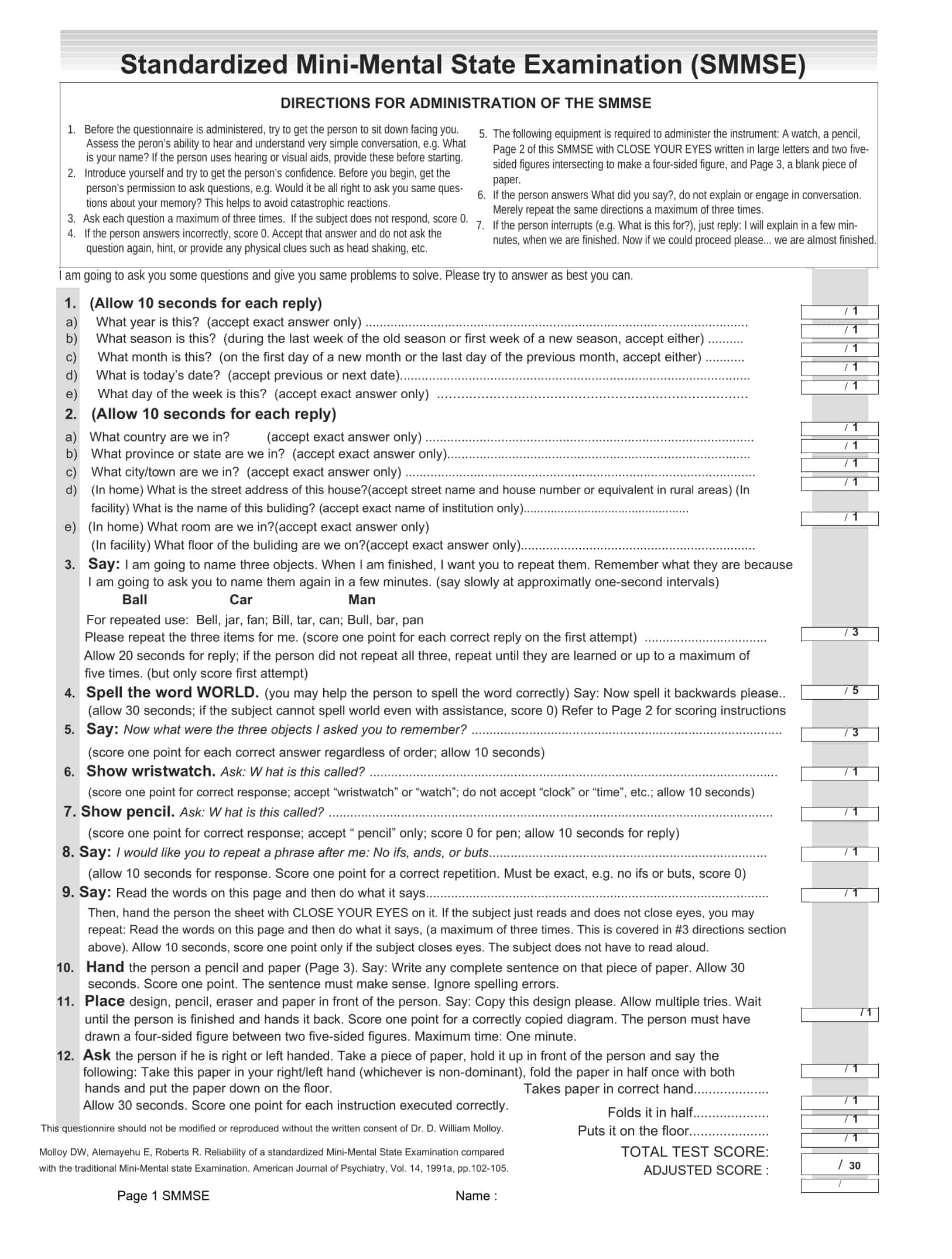

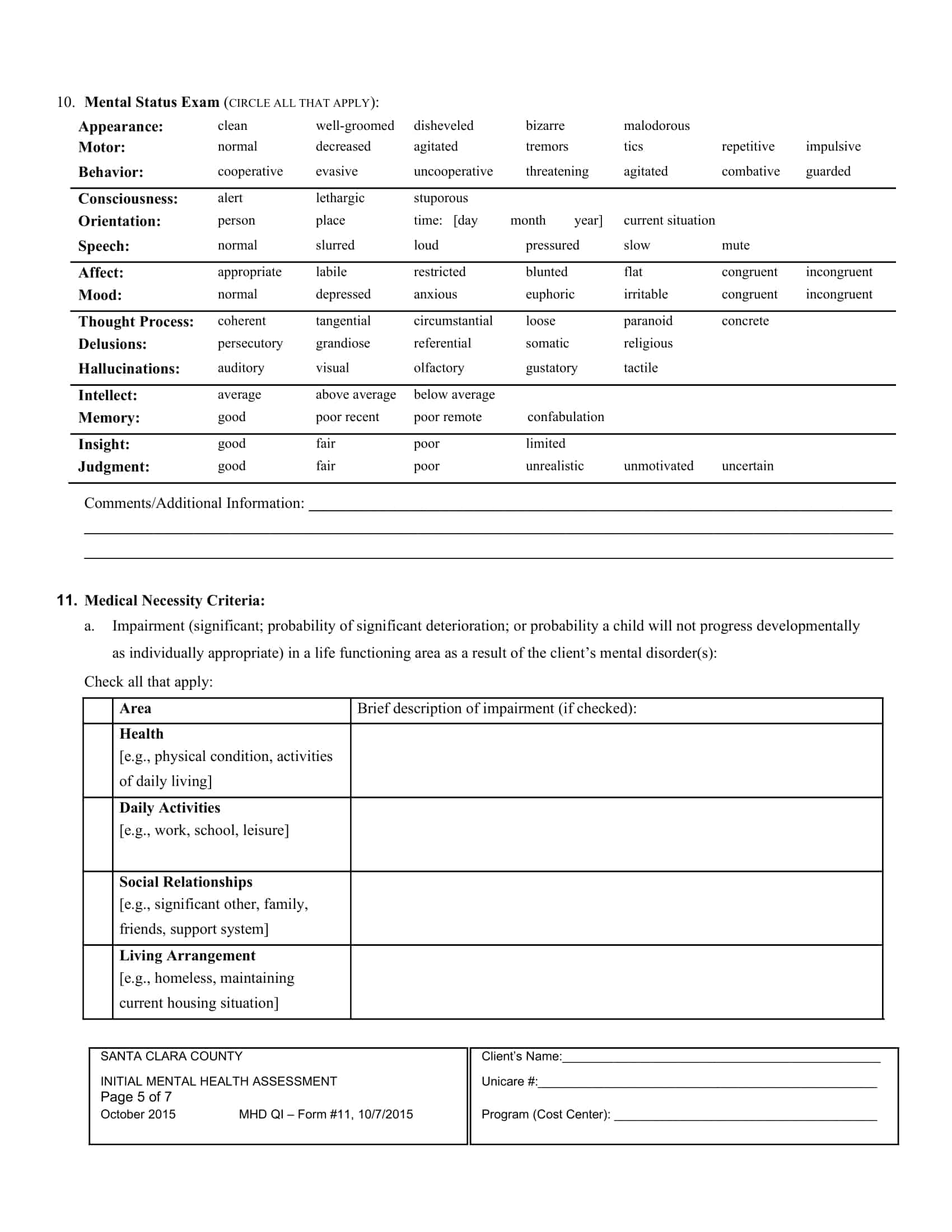




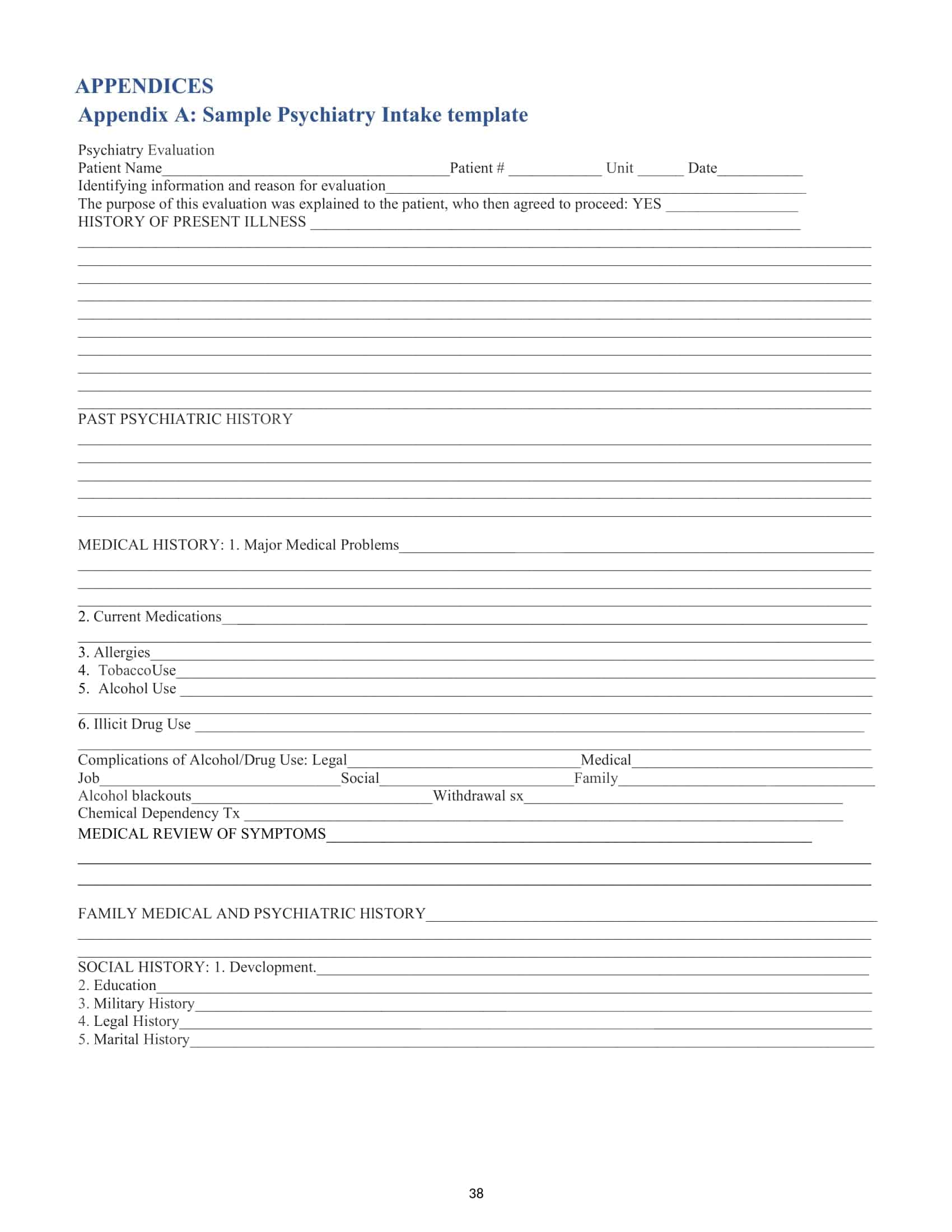

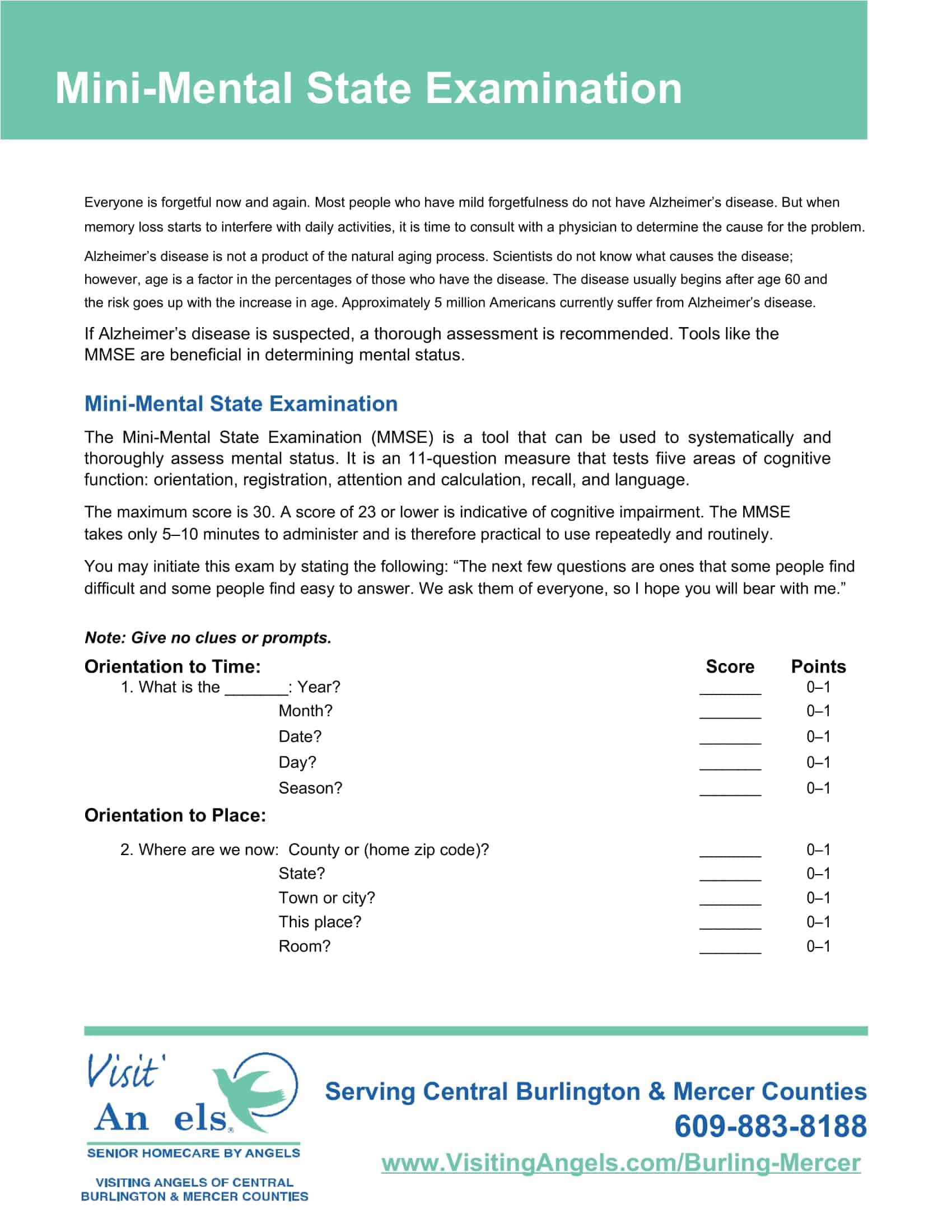
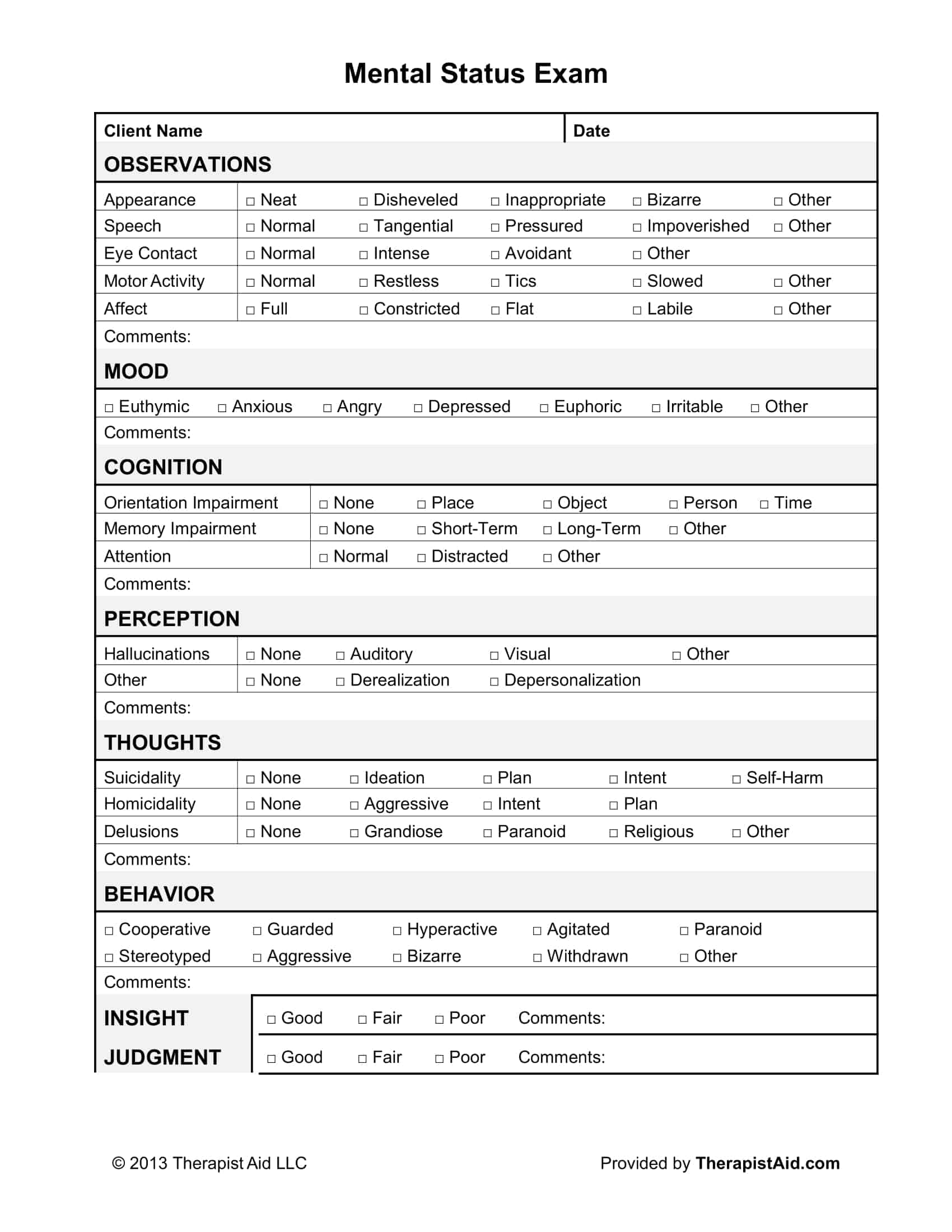














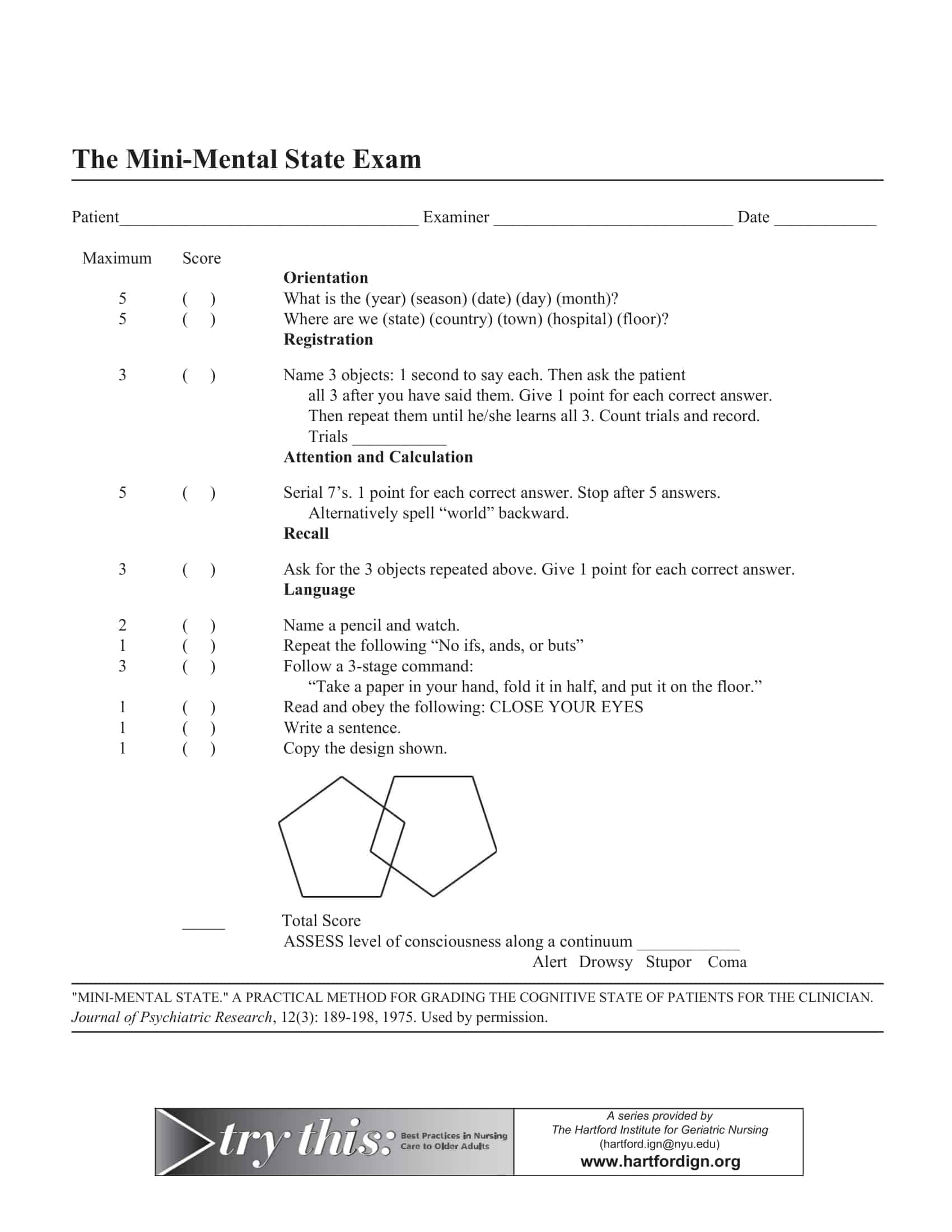
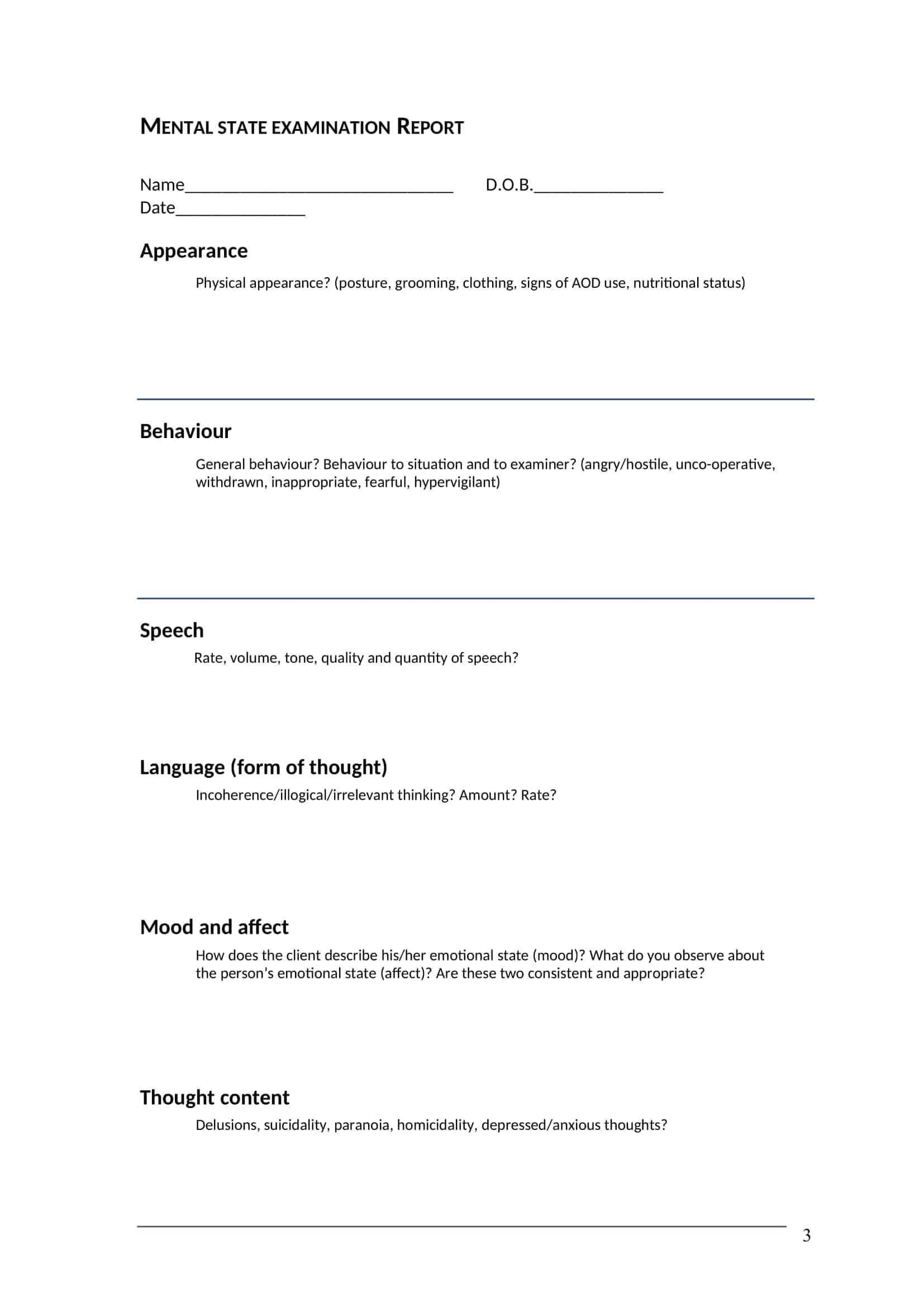
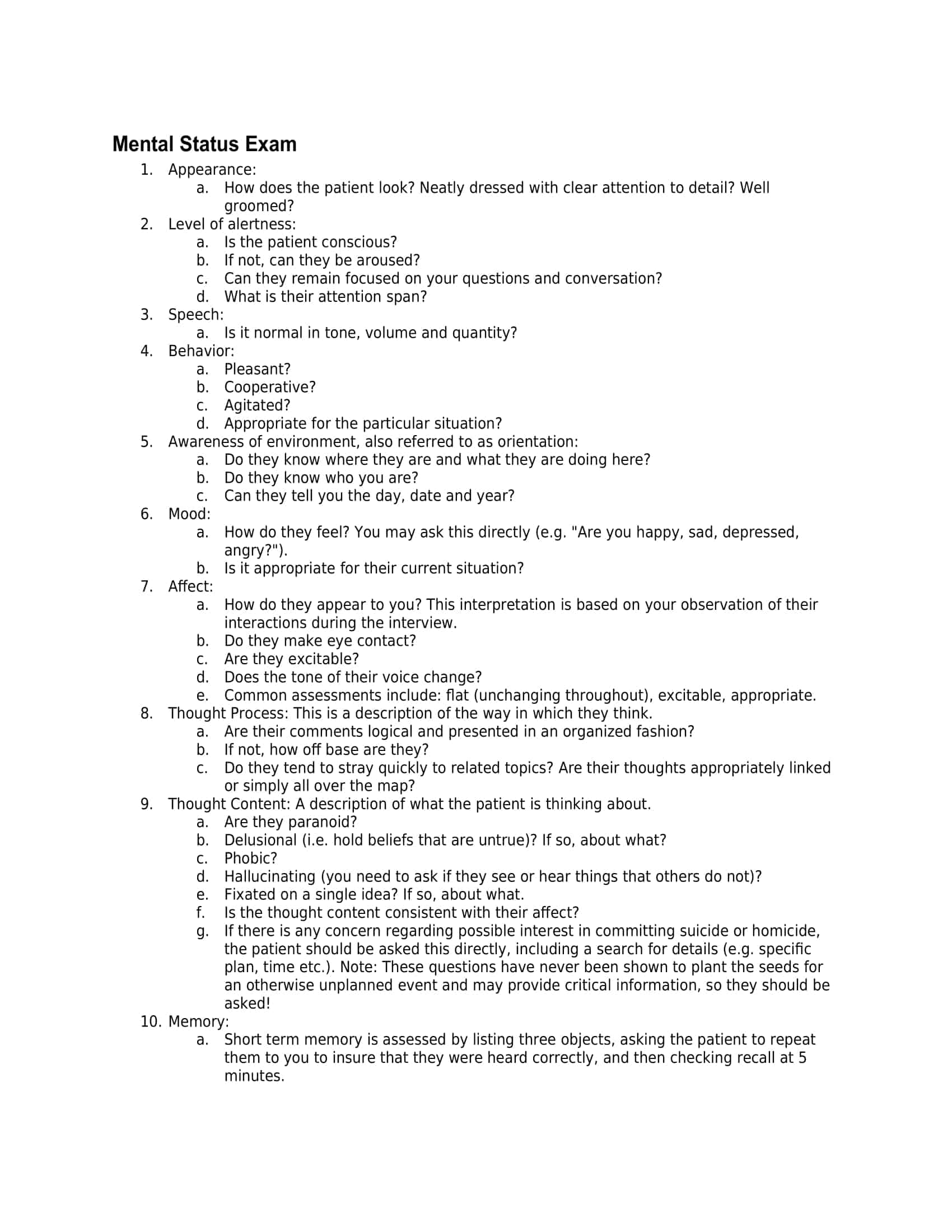


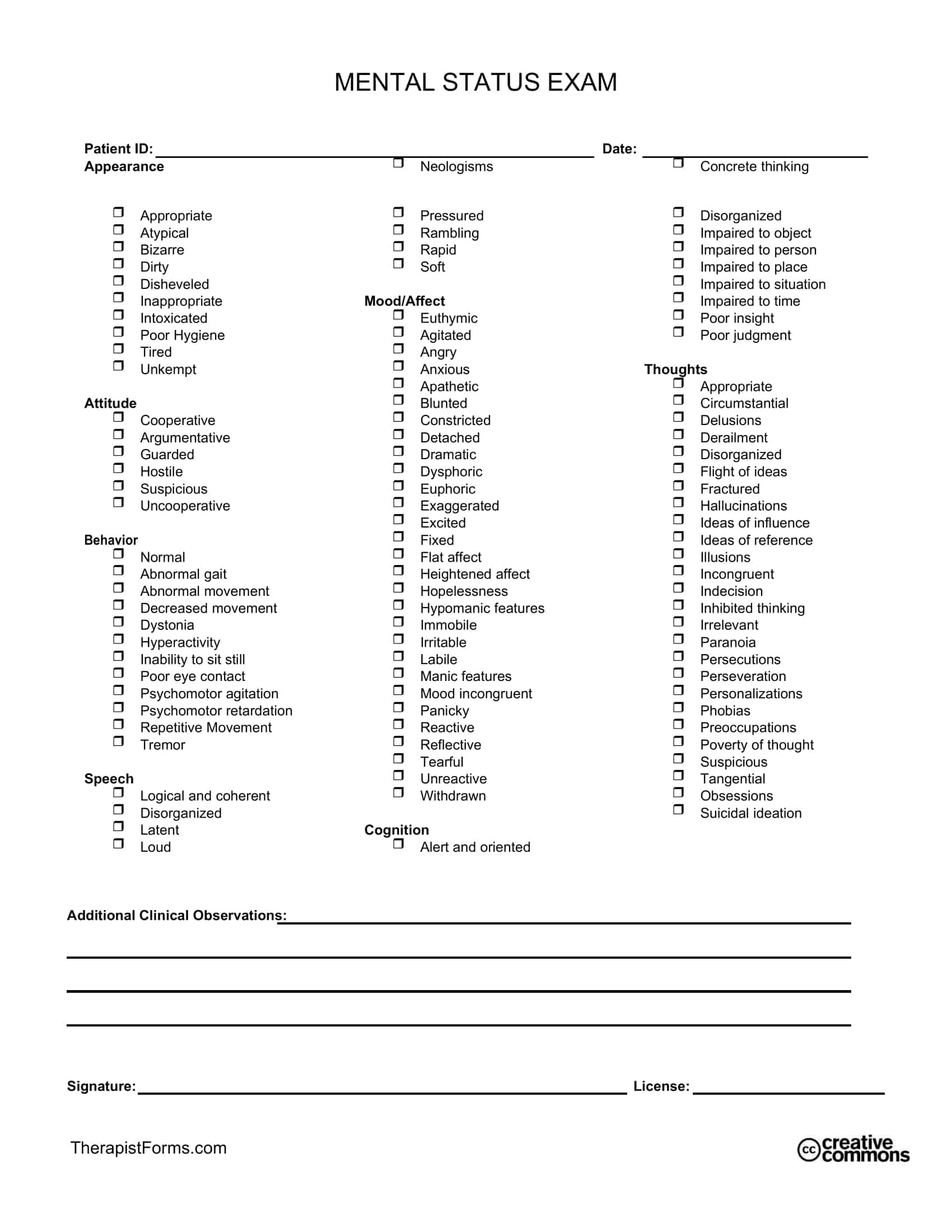











![Free Printable Roommate Agreement Templates [Word, PDF] 1 Roommate Agreement](https://www.typecalendar.com/wp-content/uploads/2023/06/Roommate-Agreement-150x150.jpg)
![Free Printable Credit Card Authorization Form Templates [PDF, Word, Excel] 2 Credit Card Authorization Form](https://www.typecalendar.com/wp-content/uploads/2023/06/Credit-Card-Authorization-Form-150x150.jpg)
![Free Printable Stock Ledger Templates [Excel,PDF, Word] 3 Stock Ledger](https://www.typecalendar.com/wp-content/uploads/2023/08/Stock-Ledger-150x150.jpg)
